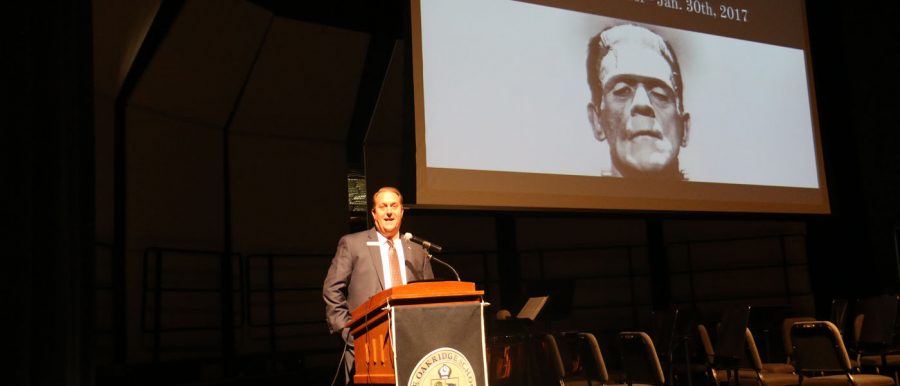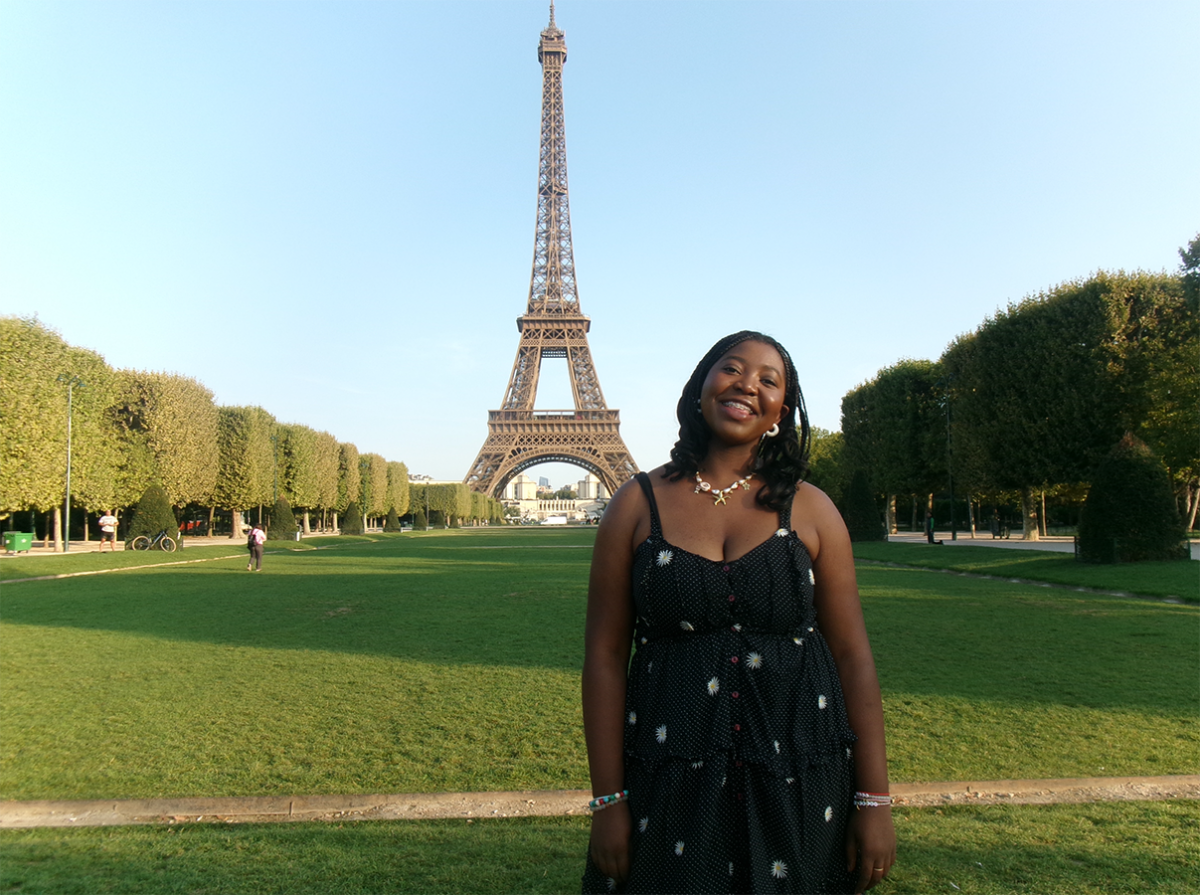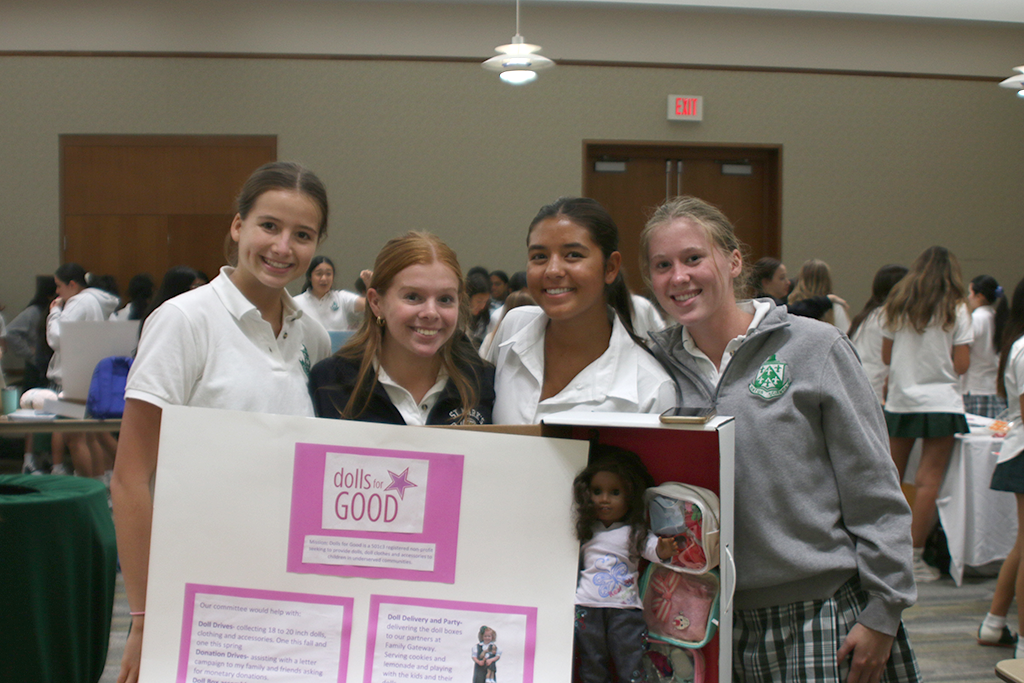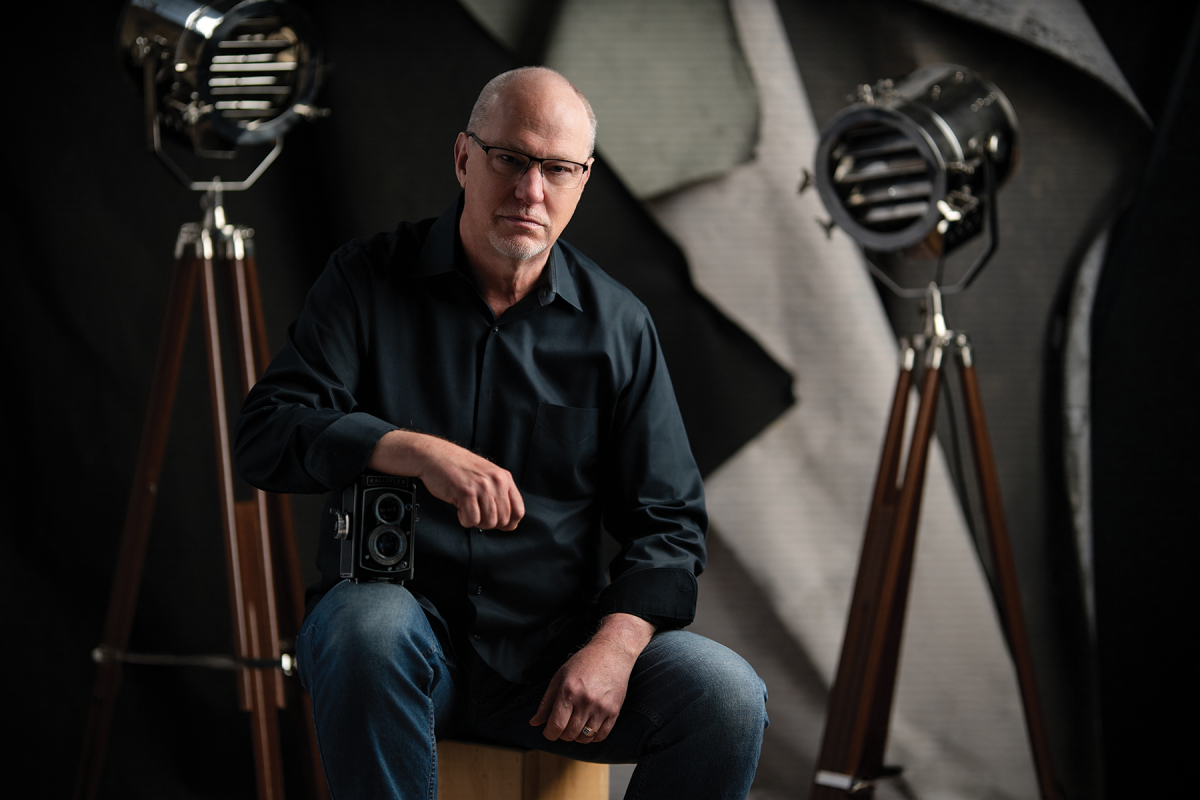On Jan. 30, At the early hour of 7:30 a.m., The Oakridge School was already humming with life. Students and staff scurried throughout the campus, checking microphones, making badges, greeting visitors, and hastily touching up as they prepared for their day-long literary colloquium.
After he moved from Brooklyn, New York to Dallas four years ago, Jared Colley began to teach English at The Oakridge School. It was then that he envisioned an event where students could come together and bond over a literary work. He looked to make new connections and reached out to various independent schools in the metroplex, hoping they would demonstrate interest in his idea.
In February 2013, Colley initiated the first colloquium at The Oakridge School and garnered participation from other independent schools in the area, including Hockaday, Greenhill, Cistercian and Fort Worth Country Day.
“I was beyond excited to finally be putting my dream of an academic colloquium into motion,” Colley said.
The theme of that first conference was “Dubliners,” a collection of short stories by James Joyce. Students submitted papers in which they approached the literature from the perspectives of 21st century teenagers. Eight schools and about 70 students participated. The colloquium, despite its small-scale impact, was successful in attracting a group of interested students. Since then, four more colloquiums, hosted at various schools, have taken place.
“That year was more about paper submissions and having a variety of discussions based on students’ academic papers, and over the years, it’s evolved a little bit to involve other modes of inquiries as well,” Colley said.
When Colley initially reached out to independent schools four years ago, Deborah Moreland, the former English department chair at Hockaday, was one of the first people to demonstrate enthusiasm.
“Hockaday was incredibly receptive and supportive of my initiative, and for that I am very grateful,” Colley said.
This year, Colley took advantage of the 200 year anniversary of Mary Shelley’s famed gothic fiction novel. To commemorate this monumental event, the theme for this year’s annual colloquium, which took place on Jan. 30, was “Frankenstein.”
“‘Frankenstein’ invites so many different kinds of readings and therefore serves as a really great text to developing a critical thinker in high schools. This text has really interesting interpretations to be made from some sort of ethical, scientific, feminist, or philosophical lens,” Colley said.
Hockaday Upper School English teacher Jennifer Boulanger was in charge of coordinating Hockaday’s communication with Oakridge. Intrigued by Shelley’s backstory and the premise of “Frankenstein,” Boulanger encouraged her students to read and attend the colloquium since early September.
“I love that it is written by a woman, that it deals with these issues of who has a right to create and take life away and what constitutes life. I like how that relates to some of the questions we’re having in scientific development right now like stem cell research and cloning,” Boulanger said.
In collaboration with fellow English teachers Jennifer McEachern and Claire Cothren, Boulanger organized a book club for any students interested in reading and submitting work to the colloquium. The club met occasionally during conference and lunch periods.
At the meetings, the attendees often discussed and analyzed the profound themes in “Frankenstein,” which piqued the interest of many students, among them sophomores Emily Ma and Alexa May, who jointly submitted a short film to present at the conference. Ma and May crafted a film that illustrated their interpretation of what “Frankenstein” meant to Shelley.
“‘Frankenstein is classic literature so there are a lot of short films, movies and advertisements that are the same. We were thinking about what new perspective we can bring to the novel through our film,” Ma said.
Once submitted, the video was judged and selected to showcase at the colloquium. In fact, all creative and analytical papers, and other forms of visual art works, were subjected to the same elimination regimen. Colley took on much of the role and decides which works will be displayed.
“When I’m judging, I’m not necessarily looking for an exquisitely written paper with an earth-shattering thesis or a professionally-produced film,” Colley said. “I just want to see genuine interest and effort from a student; I want to see that they’re having fun with it.”
And indeed, students did have fun while preparing for the colloquium.
“Even though film is my fine art, I feel like I’m immersed in it in my daily life, and I’m loving all the steps, the work, the creative demands, and even the obstacles of making the ‘Frankenstein’ film,” May said.
The colloquium itself was a day long event. Students and faculty bustled up and down the busy halls, finding their way to the classrooms where their peers were presenting. Papers were written on topics ranging from an analysis of the religious connotations in “Frankenstein” to an in-depth comparison of the novel to ‘the hedgehog’s dilemma.’ Films of various genres aired in some rooms, while in others, student thespians actively engaged in a re-enactment of some scenes from ‘Frankenstein.’
Anne Frey, a British Literature professor at Texas Christian University, was a keynote speaker at the colloquium. Addressing the social and literary significance of “Frankenstein,” Frey discussed the advantages a high-schooler can gain from reading the novel.
“Frankenstein is one of the top five most read books among college campuses in America. You guys are already ahead of the game if you’ve read it at a deeper level,” Frey said in her speech.
Colley believes that students can gain a unique and educational experience at the colloquium.
“I didn’t go to these kind of things until I was in graduate school. I think getting front of a foreign audience outside the dynamic of your classroom is really healthy. I also think it’s fun; it’s a giddy, nervous fun and it’s a great environment to benefit from,” Colley said.







